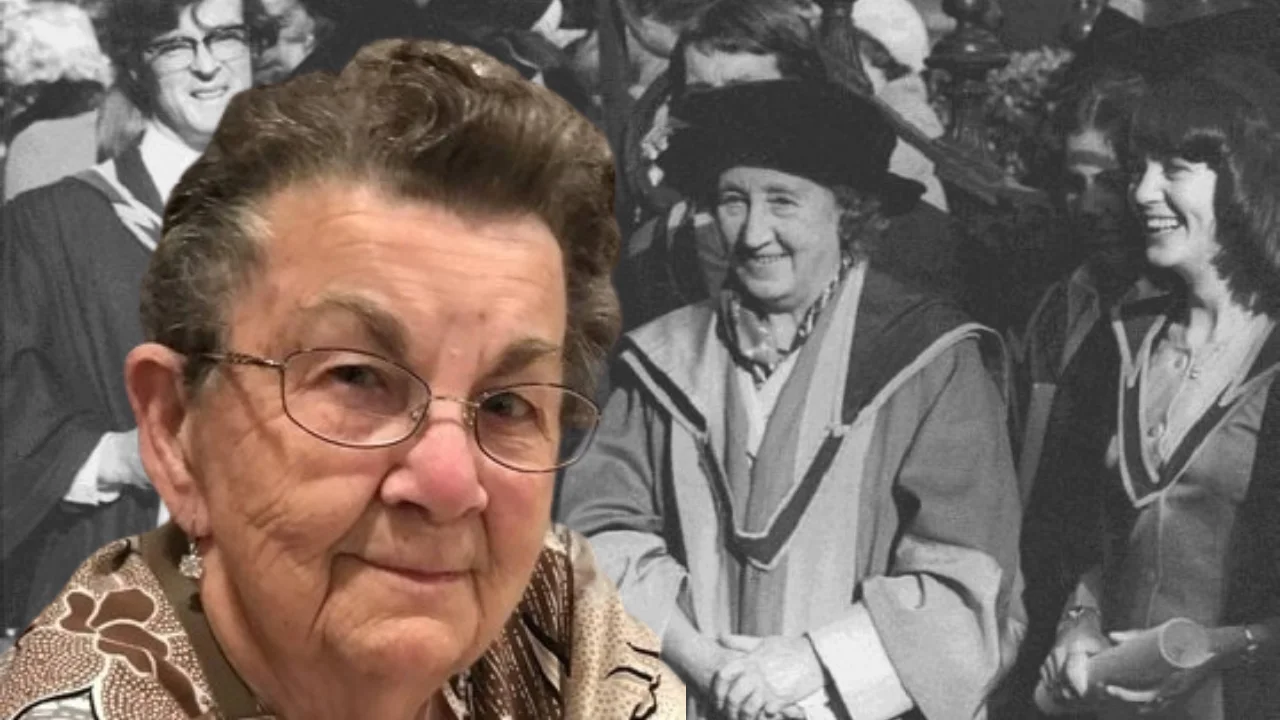Phyllis Clinch: A Scientific Icon in Plant Virology
10 Mar 2025

Phyllis Clinch, a pioneering figure in plant virology, made groundbreaking contributions to the field of botany and virology.
As one of Ireland’s most distinguished female scientists, she played a crucial role in expanding our understanding of plant viruses, particularly in relation to potato diseases.
Her relentless pursuit of knowledge, combined with her scientific rigor, led to revolutionary discoveries that benefited agriculture and plant health worldwide.
Despite facing challenges as a woman in the scientific community of her time, Clinch’s perseverance and brilliance secured her a legacy that continues to inspire researchers today. This article delves deep into her life, career, and the lasting impact of her work.
A Passion for Science: Early Life and Education
Born in 1901 in Dublin, Ireland, Phyllis Clinch exhibited an early passion for science. Growing up in a period when opportunities for women in STEM were limited, her interest in the natural world was nurtured through her education.
She attended University College Dublin (UCD), where she pursued a degree in botany. Excelling in her studies, she quickly demonstrated her aptitude for research and scientific inquiry.
Under the mentorship of accomplished scientists, she developed a keen interest in plant pathology and virology.
Her early research focused on plant diseases, and she quickly realized the critical implications of her work in agriculture and food security.
Determined to push the boundaries of scientific understanding, she continued her studies and earned a doctorate in botany, setting the stage for her illustrious career.
Breaking Barriers in Plant Virology
Phyllis Clinch entered the field of plant virology at a time when little was known about plant pathogens. Her research was instrumental in identifying and understanding plant viruses, particularly those affecting crops like potatoes, a staple food in Ireland and many other parts of the world.
One of her most significant contributions was her work on virus diseases in potatoes. By meticulously studying viral infections in plants, she was able to isolate and describe various viruses that had detrimental effects on crop yield.

Portrait by Vera Klute for the RIA Women on Walls campaign (2016),
Her findings were critical in developing strategies to combat these diseases, helping farmers and agricultural experts improve food production.
Clinch’s work extended beyond laboratory research. She collaborated with farmers, agricultural researchers, and policymakers to ensure that her scientific discoveries had practical applications.
Her ability to bridge the gap between academia and real-world agricultural challenges made her a respected figure both in scientific circles and among those directly affected by plant diseases.
Lesson: Perseverance Breaks Barriers - Clinch pursued a career in plant virology at a time when women faced significant obstacles in the scientific community. Despite these challenges, she remained determined and committed to her research, proving that perseverance and dedication can overcome societal limitations.
Achievements and Recognition: A Legacy in Science
Phyllis Clinch’s groundbreaking work did not go unnoticed. She became the first woman to be awarded the Boyle Medal in 1961, one of Ireland’s highest honors in scientific achievement.
This prestigious award recognized her invaluable contributions to plant virology and her role in advancing scientific knowledge.
Throughout her career, Clinch published numerous research papers that became foundational texts in the field of plant virology.
Her meticulous research methods and innovative approaches set new standards for botanical and virological studies. Additionally, she played a key role in mentoring the next generation of scientists, encouraging young researchers, particularly women, to pursue careers in STEM fields.
Her contributions extended beyond Ireland, earning her international recognition. Scientists around the world drew from her research to further their own studies in plant pathology and virology. Today, her legacy lives on in the continued fight against plant diseases and in the work of researchers who build upon her discoveries.
Lesson: Science Should Have Real-World Impact-Her work was not just theoretical; it had practical applications that benefited farmers and improved agricultural practices. Clinch’s career highlights the importance of applying scientific knowledge to solve real-world problems and make a tangible difference in society.
Challenges and Personal Struggles: Defying the Odds
Despite her achievements, Phyllis Clinch faced numerous challenges, particularly as a woman in a male-dominated scientific community.
In the early 20th century, women in science often encountered systemic barriers that limited their career growth and opportunities. Clinch, however, refused to be deterred by these societal limitations.
She had to work harder to prove herself in a field where women’s contributions were frequently overlooked.
Despite these obstacles, she remained dedicated to her research, often spending countless hours in the laboratory conducting meticulous experiments and analysis.
Her determination and perseverance not only advanced her career but also paved the way for future generations of women in science.
Beyond professional challenges, Clinch also faced the personal sacrifices that come with a demanding scientific career.
Her unwavering commitment to her research often meant long hours and an intense focus on her work. However, she found fulfillment in the knowledge that her discoveries were making a tangible difference in the field of agriculture and plant health.
Enduring Influence: How Phyllis Clinch Shaped Modern Plant Virology
Phyllis Clinch’s influence on plant virology and botany extends far beyond her lifetime. Her research laid the foundation for further studies on plant viruses, particularly in developing strategies for disease prevention and crop protection. The methodologies she pioneered continue to guide plant virologists in their work today.
Her impact is also felt in the growing representation of women in science. By breaking barriers and achieving significant recognition in her field, she became a role model for aspiring female scientists.
Her legacy serves as a reminder that passion, dedication, and resilience can overcome even the most formidable challenges.
Today, as researchers continue to explore solutions to agricultural challenges, Phyllis Clinch’s work remains a beacon of inspiration.

Dr Phyllis Clinch (1901-1984) developed virus-free potatoes and was the first woman to receive the Boyle Medal in 1961
The scientific community continues to honor her contributions, ensuring that her name and legacy are remembered in the annals of plant virology.
-Beyond her own research, Clinch played a crucial role in mentoring young scientists, especially women. She demonstrated that true success in science is not just about personal achievements but also about inspiring and guiding the next generation.
Conclusion
Phyllis Clinch’s journey from a young student in Dublin to a globally recognized scientific icon is a testament to her brilliance and determination.
Her pioneering research in plant virology not only advanced scientific knowledge but also had practical applications that benefited agriculture and food security worldwide.
Her story is one of resilience, innovation, and breaking barriers in a field where women were often underrepresented.
Through her unwavering dedication to research and education, she left a lasting impact on science and inspired countless individuals to follow in her footsteps.
As we reflect on her legacy, we are reminded of the importance of perseverance and the power of scientific discovery.
Phyllis Clinch’s contributions continue to shape the field of plant virology, ensuring that her influence endures for generations to come.




